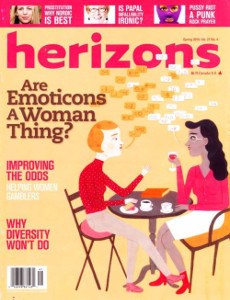
The internment of Japanese Americans in the United States during World War II was the forced relocation and incarceration in concentration camps in the western interior of the country of between 110,000 and 120,000 people of Japanese ancestry, most of whom lived on the Pacific coast. Sixty-two percent of the internees were United States citizens. These actions were ordered by President Franklin D. Roosevelt shortly after Imperial Japan's attack on Pearl Harbor.

Sabbath's Theater is a novel by Philip Roth about the exploits of 64-year-old Mickey Sabbath. It won the 1995 U.S. National Book Award for Fiction. The cover is a detail of Sailor and Girl (1925) by German painter Otto Dix.

Cynthia Kadohata is a Japanese American children's writer best known for her young adult novel Kira-Kira which won the Newbery Medal in 2005. She won the National Book Award in Young People's Literature in 2013 for The Thing About Luck.

When We Were Orphans is the fifth novel by Nobel Prize-winning British author Kazuo Ishiguro, published in 2000. It is loosely categorised as a detective novel. When We Were Orphans was shortlisted for the 2000 Man Booker Prize, though it is considered one of Ishiguro's weakest works, with Ishiguro himself saying "It's not my best book".
Yoshiko Uchida was an award-winning Japanese American writer.
Kathryn Harrison is an American author. She has published seven novels, two memoirs, two collections of personal essays, a travelogue, two biographies, and a book of true crime. She reviews regularly for The New York Times Book Review.

The Topaz War Relocation Center, also known as the Central Utah Relocation Center (Topaz) and briefly as the Abraham Relocation Center, was an internment camp which housed Americans of Japanese descent and immigrants who had come to the United States from Japan, called Nikkei. President Franklin Roosevelt signed Executive Order 9066 in February 1942, ordering people of Japanese ancestry to be incarcerated in "relocation centers" like Topaz during World War II. Most of the people interred at Topaz came from the Tanforan Assembly Center and previously lived in the San Francisco Bay Area. The camp was opened in September 1942 and closed in October 1945.

No-No Boy is a 1957 novel, and the only novel published by Japanese American writer John Okada. The novel tells the story of a Japanese American in the aftermath of the internment of Japanese Americans during World War II. Set in Seattle, Washington in 1946, the novel is written in the voice of an omniscient narrator who frequently blends into the voice of the protagonist.

The Godfather Returns is a novel written by author Mark Winegardner, published in 2004. It is the sequel to Mario Puzo's The Godfather, which was originally published in 1969, and The Sicilian (1984). The publisher, Random House, selected Winegardner to write a sequel after Puzo's death. As the original novel covered the years 1945 to 1955, and included significant backstory on Don Vito Corleone's life, Returns covers the years 1955 to 1962, and includes significant backstory on Michael Corleone's life prior to the first novel.
Mary McGarry Morris is an American novelist, short story author and playwright from New England. She uses its towns as settings for her works. In 1991, Michiko Kakutani of The New York Times described Morris as "one of the most skillful new writers at work in America today"; The Washington Post has described her as a "superb storyteller"; and The Miami Herald has called her "one of our finest American writers".

Day of Independence is a 2003 short film, broadcast in 2005 as a half-hour PBS television special. It is a drama, set during the Japanese American internment of World War II, produced by Cedar Grove Productions with Visual Communications as fiscal sponsor.
Hisaye Yamamoto was a Japanese American author. She is best known for the short story collection Seventeen Syllables and Other Stories, first published in 1988. Her work confronts issues of the Japanese immigrant experience in America, the disconnect between first and second generation immigrants, as well as the difficult role of women in society.
Nora Okja Keller is a Korean American author. Her 1997 breakthrough work of fiction, Comfort Woman, and her second book (2002), Fox Girl, focus on multigenerational trauma resulting from Korean women's experiences as sex slaves, euphemistically called comfort women, for Japanese and American troops during World War II.

Super Sad True Love Story is the third novel by American writer Gary Shteyngart. The novel takes place in a near-future dystopian New York where life is dominated by media and retail.
The Buddha in the Attic is a 2011 novel written by American author Julie Otsuka about Japanese picture brides immigrating to America in the early 1900s. It is Otsuka's second novel. The novel was published in the United States in August 2011 by the publishing house Knopf Publishing Group.

The Age of Miracles is the debut novel of American writer Karen Thompson Walker. It was published in June 2012 by Random House in the United States and Simon & Schuster in the United Kingdom. The book chronicles the fictional phenomenon of 'slowing', in which one Earth day takes longer to complete.

What We Talk About When We Talk About Anne Frank is a 2012 short story collection by the American writer Nathan Englander. It was first published on February 7, 2012 through Knopf and collects eight of Englander's short stories, including the title story "What We Talk About When We Talk About Anne Frank." The title of the collection takes influence from Raymond Carver's 1981 short story collection What We Talk About When We Talk About Love. It was a finalist for the Pulitzer Prize for Fiction, losing to Adam Johnson's The Orphan Master's Son. Englander's collection was awarded the 2012 Frank O'Connor International Short Story Award.

The Underground Railroad, published in 2016, is the sixth novel by American author Colson Whitehead.
















